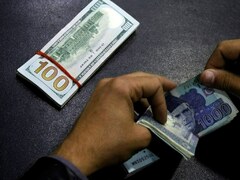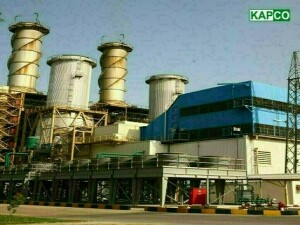Brent oil futures fell by nearly $2 per barrel on Monday as ample global supplies outweighed concerns over continued tensions between Russia and the West over the fate of Crimea. While the United States and Europe imposed sanctions on Russian officials, Crimea's vote to become part of Russia passed without major violence over the weekend, and oil supplies from Russia remained unaffected.
Global oil prices rallied into the weekend as traders bought contracts to cover themselves against the risk that if Sunday's vote turned violent it might impact exports from the world's second largest oil producer. US President Barack Obama reiterated that the West is still trying to resolve the crisis with diplomacy and sanctions, leaving low seasonal demand in the US and Europe and ample global supply to weigh on oil prices.
"With these news events, panic sets in for a few weeks, but it's not enough to sustain high prices," said Richard Ilczyszyn, chief market strategist at energy trading website iitrader.com. "US oil should be in the low 90s based on the weak fundamental outlook." US crude futures fell $1.16 cents to $97.73 per barrel by 1 pm EDT (1700 GMT), having fallen gradually by more than $1 in the hour after Obama's comments.
Brent crude futures fell $1.54 to $106.67 per barrel after tumbling by nearly $2 after Obama's brief address. The United States and Europe have rejected the outcome of the referendum, announcing asset freezes and travel bans on Russians and Ukrainians linked to Crimea's efforts to realign itself with Moscow.
But they have so far targeted individuals rather than imposing broad trade or financial measures that would inflict significant economic damage. Russian assets and the rouble rebounded on Monday on the view that sanctions would be limited. The potential for warmer weather in the United States and Europe was also likely to ease oil demand after a long, harsh winter, exerting further downward pressure on prices, traders and analysts said.
News that Libyan oil production fell to less than 250,000 barrels per day after the El Sharara oil field stopped pumping due to a new protest capped losses in Brent. US special forces troops boarded a tanker in the Mediterranean Sea that had fled the rebel-held Libyan port of Es Sider with a cargo of oil, halting an attempt by rebels to sell petroleum on the global market.
In a separate incident, a car bomb exploded outside a Libyan army base in the eastern city of Benghazi, where the weak central government has been battling Islamist militant groups. The incidents underscored traders' expectations the instability in Libya would be protracted, analysts said. Investors will also be eyeing the US Federal Reserve's two-day meeting which starts on Tuesday. Policymakers are likely to continue the Fed's earlier decision to cut its bond-buying pace by another $10 billion a month.
BR100
15,103
Increased By
140.9 (0.94%)
BR30
42,619
Increased By
540.8 (1.29%)
KSE100
148,196
Increased By
1704.8 (1.16%)
KSE30
45,271
Increased By
438.2 (0.98%)






















Comments
Comments are closed.